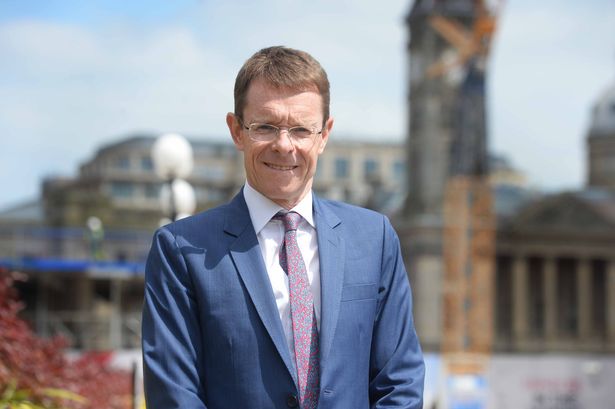- January 8, 2018
- Posted by: lutherpendragon
- Category: insight

Brexit is likely to dominate many public affairs strategies for 2018, but away from the machinations of the negotiating rooms, there is a quiet revolution taking place in many of our key cities and regions, and organisations need to consider whether they should be part of it.
That revolution is being led by the six newly elected Metro Mayors, who have set out some of the most impressive and clearly articulated visions for the future. The office has attracted big hitters in the likes of Andy Street, Steve Rotherham and Andy Burnham, and it has been heartening to see politicians with clear and communicable plans to deliver more homes, improve public transport and infrastructure and place a real and sustained focus on the skills agenda. They have significant multi billion pound budgets, with considerable powers to take the lead on key policy areas, particularly transport and most importantly there seems a real desire to actively engage with a wide range of partners – in both the public and private sectors – to help them understand how they can achieve their specific objectives.
With senior staff, governance regimes, firmer strategies now in place and budget proposals on the way, the New Year is a good time to consider engaging with the Metro Mayors and their Combined Authorities to add value to your public affairs programme. So with that in mind, here’s some things to think about on seeking to influence their work:
- Take note of their local priorities – Many of the Mayors have produced detailed documents which set out the political direction of travel for their mayoralties, and these should be the starting point. Andy Street’s Renewal Plan or Steve Rotherham’s Our Future Together are very useful in understanding the focus for the administration and how their officials are likely to approach key issues, indeed one mayoral advisor referred to their Mayor’s document as the ‘bible’. Shaping messages and introductions around the priorities in these documents will help to form the basis of a successful opening discussion with the authority.
- Find the right people to engage with – The Mayors have all gone for slightly different governance models, these range from familiar political Cabinet arrangements, to teams of senior officials with specific objectives, through to larger committee structures. Many involve local council leaders and members of the Local Enterprise Partnerships and many of the Mayors have also appointed Chiefs of Staff and political advisors, a key role for them being to drive the Mayor’s priorities with central government. Identifying the right people with the most relevant responsibilities will be crucial in getting a hearing quickly, and substantive engagement.
- Focus on the strategic – The Mayors have a very specific role to set a strategic direction for their regions, bringing policy, people and resources together to ensure that partners undertake the day-to-day delivery in a coherent way. As Tees Valley Mayor Ben Houchen often says they are not ‘super councils’, simply there to replicate the existing structures, they’re doing something new. Organisations that can facilitate in drawing those delivery partners together, who can help provide and shape evidence on the strategic needs of the region, and marry this with the political priorities of the Mayoralty are likely to get a positive response.
- Come with a financing proposition – While the Mayors have significant funding pots within their devolution deals, which cover essential elements such as transport services, many other aspirations remain unfunded. This requires the Mayors to bid into specific central government funding pots via business cases, most notably within the Industrial Strategy framework. They key being that they have to prove there’s a deliverable economic pay back. Many will also be under pressure to look at the new taxation and precept powers that come into force in 2018, to increase their income. Coming with a strong business case is therefore critical and financing propositions which help the Mayors to leverage private finance will undoubtedly be attractive for many of the Combined Authorities.
- Identify wider partnerships – Given that many of the mayoralties have relatively small numbers of officials (outside of transport anyway), many are choosing to work with partnership organisations, often public/private bodies, to help them develop their thinking, encourage innovation and ultimately increase their bandwidth. For example the West Midlands Combined Authority is working closely with Energy Capital, a partnership led by the region’s universities to develop thinking on energy infrastructure. Engaging these partnership bodies can therefore be a useful way to influence a Mayor’s agenda.
Luther Pendragon are experts at helping organisations develop successful public affairs strategies, if you are interested in promoting the work of your organisation with the Metro Mayors, or more broadly in Westminster and Whitehall, contact us for more details.
